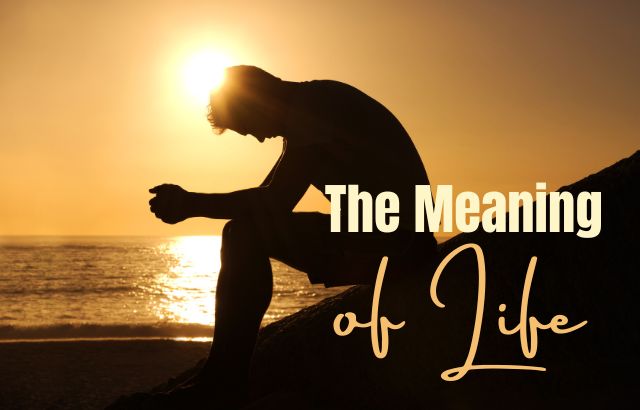The meaning of life is a question that has puzzled philosophers, theologians, and scientists for centuries. While there is no one definitive answer, there are many different perspectives on what gives life meaning and purpose. Join us as we explore some of the most prominent philosophical theories on the meaning of life.
Table of Contents
The Meaning of Life: The search for meaning.
The search for meaning is a fundamental aspect of human existence. From the earliest recorded history, humans have been asking questions about the purpose of their existence. Philosophers have proposed many different theories about what gives life meaning, ranging from the pursuit of pleasure to the attainment of spiritual enlightenment. Ultimately, the search for meaning is a deeply personal and subjective journey that each individual must undertake for themselves.
The Meaning of Life: The existentialist perspective.
According to existentialist philosophy, the meaning of life is not something that can be objectively determined or discovered. Instead, it is a subjective experience that each individual must create for themselves. Existentialists believe that humans are free to make their own choices and create their own meaning in life, but this freedom also comes with the responsibility to take ownership of their choices and the consequences that come with them. This perspective emphasises the importance of living authentically and embracing the uncertainty and ambiguity of life.
The Meaning of Life: The religious perspective.
Many religions offer their own perspectives on the meaning of life. For example, in Christianity, the meaning of life is often seen as fulfilling God’s purpose and living a life of service to others. In Buddhism, the meaning of life is to achieve enlightenment and end the cycle of suffering. In Hinduism, the meaning of life is to achieve union with the divine. These perspectives often involve a belief in a higher power or spiritual realm and a set of guidelines or practices to follow in order to achieve the ultimate goal.
The Meaning of Life: The humanist perspective.
Humanism is a philosophical perspective that emphasises the value and agency of human beings, individually and collectively, and generally prefers critical thinking and evidence over acceptance of dogma or superstition. From a humanist perspective, the meaning of life is not predetermined by a higher power or spiritual realm, but rather is something that each individual must create for themselves. This can involve finding purpose and fulfilment through personal relationships, creative pursuits, intellectual pursuits, or making a positive impact on the world. Humanists believe that life has meaning because we give it meaning, and that we have the power to create a better world for ourselves and future generations.
The Meaning of Life: The subjective perspective.
Another philosophical perspective on the meaning of life is the subjective perspective. This perspective emphasises the individual experience and perception of meaning. According to this perspective, the meaning of life is not something that can be objectively defined or discovered, but rather is something that each person must find for themselves through their own experiences and reflections. This can involve finding meaning in relationships, personal growth, spirituality, or simply enjoying life’s pleasures. The subjective perspective acknowledges that the meaning of life may be different for each person, and that there is no one-size-fits-all answer to this ultimate question.



























